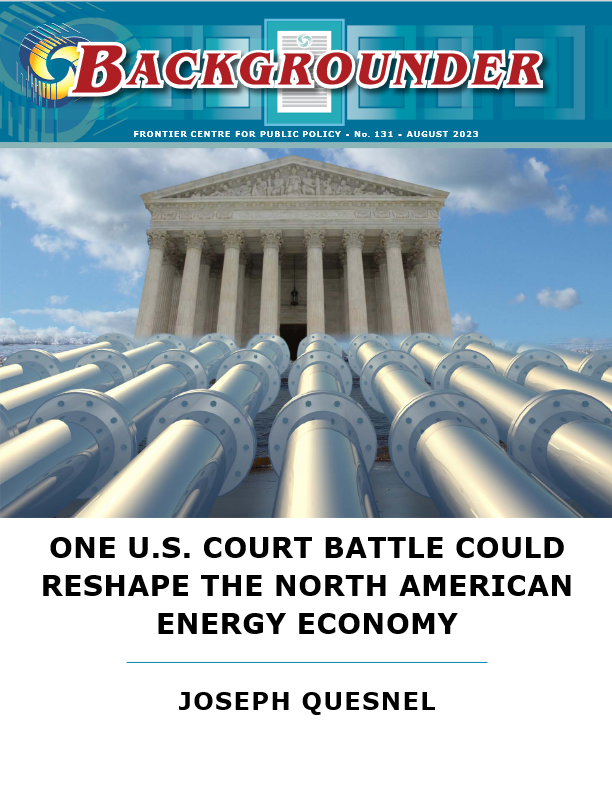WINNIPEG August 10 2023 – A current court case in South Portland, Maine, could significantly impact the energy pipeline trade between the U.S. and Canada, warns the Frontier Centre for Public Policy.
Senior Research Associate Joseph Quesnel, author of One U.S. Court Battle Could Reshape the North American Energy Economy, sheds light on the origins of the dispute. The Portland Pipeline Corporation aimed to reverse an underused WWII-era pipeline connecting Montreal and Maine. In response, Quesnel notes, the city council “rapidly passed a zoning ordinance that banned the bulk loading of crude oil tankers due to air quality concerns.”
The corporation countered, arguing this ordinance breaches the U.S. Constitution, which gives Congress the sole power over interstate and foreign commerce. There is evidence of a broader environmental agenda, backed by both U.S. and Canadian groups, to halt the U.S. import of “dirty” Canadian oil sands oil.
However, Quesnel points out that in 2018, a federal court dismissed these claims, asserting the ordinance’s constitutionality. With the corporation choosing not to appeal, he believes, “This unchallenged decision might influence future similar cases.”
Quesnel interprets this as an ongoing strategy, with ties to environmentalists and U.S. economic nationalists. He references the Allen Inquiry in Alberta and suggests the “Baptists and Bootleggers” theory might explain why different groups are rallying against Canadian oil.
Contrarily, Quesnel mentions Canadian courts uphold federal authority over inter-provincial and foreign trade, suggesting optimism for Canadian energy projects.
However, the Maine decision, unchecked, might inspire more U.S. local ordinances restricting energy infrastructure. “Energy producers in both nations should anticipate upcoming challenges,” warns Quesnel.
The outcome of this case could redefine energy commerce between the U.S. and Canada. “It’s a critical juncture for the energy futures of both countries,” emphasizes Quesnel.
View as PDF: FB131_NAEnergy_AG0723_F1
For media inquiries, please contact:
Joseph Quesnel
Senior Research associate
Frontier Centre for Public Policy
joseph.quesnel@fcpp.org
David Leis
VP Development and Engagement
david.leis@fcpp.org
604-864-1275
About the Frontier Centre for Public Policy
The Frontier Centre for Public Policy is an independent, non-partisan think tank that conducts research and analysis on a wide range of public policy issues. Committed to promoting economic freedom, individual liberty, and responsible governance, the Centre aims to contribute to informed public debates and shape effective policies that benefit Canadians.



